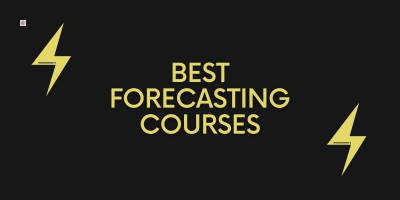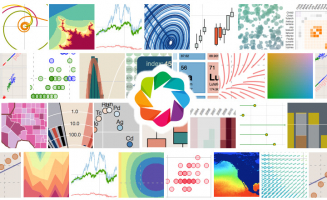Top 9 Best Online Calculus Courses
Calculus is a tool used by engineers to determine such quantities as rates of change and areas. Calculus is the mathematical 'backbone' for dealing with ... read more...problems where variables change with time or some other reference variable, and a basic understanding of calculus is required for further study and the development of confidence in solving practical engineering problems. Toplist has compiled a list of the best online calculus courses which help you to enhance this skill.
-
The Introduction to Calculus course focuses on the most critical foundations for mathematical applications in science, engineering, and business. The course emphasizes the fundamental ideas and historical inspiration for calculus while also establishing a balance between theory and application, resulting in mastery of critical threshold topics in foundational mathematics. This is one of the best online calculus courses.
Introduction to Calculus students will be able to:
- Gain knowledge with key concepts in precalculus, such as equation manipulation and basic functions (first two weeks). This module begins with an examination of the many types of numbers that fall on the real number line, as well as decimal expansions and approximations, before moving on to the manipulation of equations and inequalities, as well as the use of sign diagrams and the Cartesian plane.
- Develop familiarity with the fundamentals of tangents and limits, as well as the definition of a derivative (third week). This module teaches the concept of a function, which encapsulates the specific manner in which various values or measurements are related. The quadratic, cubic, and general power and polynomial functions, as well as exponential and logarithmic functions and trigonometric functions, are covered in this module.
- Develop and practice differential calculus methods with real-world applications (fourth week). This module presents differential calculus techniques. The lesson teaches Leibniz notation and demonstrates how to use it to quickly obtain information about a function's derivative as well as how to apply it.
- Develop and practice integral calculus methods (fifth week). The first and second derivatives of a function are introduced in this module, which continues the development of differential calculus. The lesson also covers how to use the Chain Rule, Product Rule, and Quotient Rule to determine derivatives of complicated functions derived from simpler functions, as well as how to use derivative information to solve challenging optimisation issues.
Skills you will gain
- Logic
- Mathematics
- Calculus
Instructor: David Easdown
Coursera rate: 4.8/5.0, 2.878 ratings
Offered by: The University of Sydney
Enroll here: https://www.coursera.org/learn/introduction-to-calculus
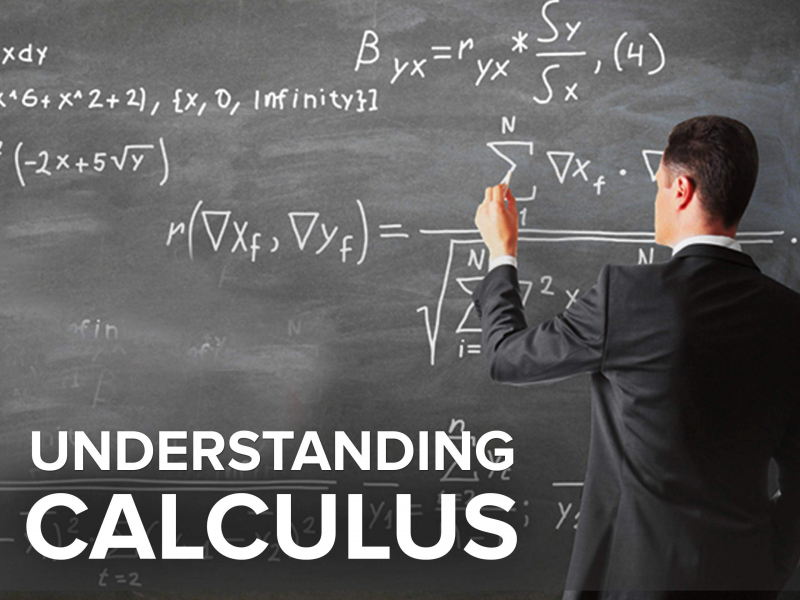
https://www.amazon.com/ 
https://www.gcsu.edu/ -
Learn to think like a mathematician, which is a powerful cognitive mechanism that has evolved over thousands of years.
Mathematical thinking is not the same as practicing arithmetic, at least not in the way that math is normally taught in our educational system. Learning processes to answer highly stereotyped problems is a common topic in school math. Professional mathematicians think in a specific way to answer real-world problems, whether they come from the actual world, science, or mathematics itself. Learning to think outside of the box is essential for success in classroom math. A significant element of mathematical thinking, on the other hand, is the ability to think beyond the box, which is a useful skill in today's environment. This course aids in the development of that critical mindset.
Start with the introduction. It explains the purpose of this course. This first orientation lesson is crucial because this course is unlikely to be like any other math course you've ever taken – even if it may appear to be! After that, Lecture 1 lays the foundation for the rest of the course, and Lecture 2 delves into the first topic. The discussion of codified aspects of language for use in mathematics continues in Week 2. Week 3 continues the examination of language as it relates to mathematics. The final week is dedicated to finishing the linguistic analysis and putting in place the linguistic machinery that enabled nineteenth-century mathematicians to build a formal mathematical account of infinite, putting Calculus on a strong foundation three centuries after its invention.
Skills you will gain
- Number Theory
- Real Analysis
- Mathematical Logic
- Language
Instructor: Dr. Keith Devlin
Coursera rate: 4.8/5.0, 2.336 ratings
Offered by: Stanford University
Enroll here: https://www.coursera.org/learn/mathematical-thinking

https://www.trinity.edu/ 
https://www.eastern.edu/ -
There's no getting around the fact that data science courses include math. This course was built for learners who have fundamental math skills but have not studied algebra or pre-calculus, and was meant to teach learners the basic math they will need to be successful in practically any data science math course. This is one of the best online calculus courses. Data Science Math Skills offers the essential math on which data science is built, with no added complexity, one at a time, presenting unexpected topics and math symbols.
Before going on to more advanced content, learners will grasp the vocabulary, notation, concepts, and algebra rules that all data scientists must know.
The following are some of the topics covered
- Venn diagrams are part of set theory.
- The actual number line's properties
- Interval notation and inequalities algebra
- Summation and Sigma notation are examples of applications.
- Slope and distance formulas on the Cartesian (x,y) plane
- On the x-y plane, graphing and describing functions and their inverses
- Tangent lines to a curve and the concept of instantaneous rate of change
- The natural log function, exponents, and logarithms
- Bayes' theorem is a part of probability theory.
While this course is meant as a broad introduction to the math abilities needed for data science, it can be used as a prerequisite for learners interested in the Excel to MySQL Data Science Specialization course "Mastering Data Analysis in Excel." Learners who master Data Science Math Skills will be well-prepared for the more complex math concepts covered in "Mastering Data Analysis in Excel."
Skills you will gain
- Bayes' Theorem
- Bayesian Probability
- Probability
- Probability Theory
Instructors: Daniel Egger, Paul Bendich
Coursera rate: 4.5/5.0, 10.246 ratings
Offered by: Duke University
Enroll here: https://www.coursera.org/learn/datasciencemathskills

https://larastock.com/ 
https://www.curry.edu/ -
The fundamental theory and applications of Vector Calculus are covered in this course. You will learn about scalar and vector fields in the first week, differentiating fields in the second week, and multidimensional integration and curvilinear coordinate systems in the third week. Line and surface integrals are covered in the fourth week, and the essential theorems of vector calculus, such as the gradient theorem, divergence theorem, and Stokes' theorem, are covered in the fifth week. In key engineering courses like electromagnetism and fluid mechanics, these theorems are required. This is one of the best online calculus courses.
Some universities may refer to this subject as Multivariable Calculus, Multivariate Calculus, or Calculus 3. A prerequisite is two semesters of single variable calculus (differentiation and integration).
The course consists of 53 brief lecture films, each having a few problems to solve thereafter. There's also a short practice quiz after each major topic. Lecture notes provided by the lecturer provide solutions to the issues as well as practice quizzes. The course is divided into five weeks, with an assessment question at the end of each week.
What you will learn
- Vectors, the dot product and cross product
- The gradient, divergence, curl, and Laplacian
- Multivariable integration, polar, cylindrical and spherical coordinates
- Line integrals, surface integrals, the gradient theorem, the divergence theorem and Stokes' theorem
Instructor: Jeffrey R. Chasnov
Coursera rate: 4.8/5.0, 1.192 ratings
Offered by: The Hong Kong University of Science and Technology
Enroll here: https://www.coursera.org/learn/vector-calculus-engineers

https://science.oregonstate.edu/ 
https://nau.edu/ -
This course provides a basic understanding of multivariate calculus, which is essential to construct several standard machine learning approaches. This is one of the best online calculus courses. The course begins with a refresher on the "rise over run" formulation of a slope, which is then converted to the formal definition of a function's gradient. The course then moves on to developing a collection of tools for making calculus simpler and faster. Instructors then learn how to construct vectors that point uphill on multidimensional surfaces and put their newfound knowledge to use in an interactive game. Instructors examine how they might utilize calculus to construct approximations to functions, as well as how to define how exact such approximations should be. Instructors also spend some time discussing how calculus is used in neural network training before showing you how it is used in linear regression models.
This course is designed to provide you a basic grasp of calculus as well as the vocabulary you'll need to hunt up concepts on your own if you get stuck. Without getting into too much depth, hopefully you'll have enough confidence to take some more specialized machine learning classes in the future.
Skill you will gain
- Linear Regression
- Vector Calculus
- Multivariable Calculus
- Gradient Descent
Instructors: Samuel J. Cooper, David Dye, A. Freddie Page
Coursera rate: 4.7/5.0, 5.120 ratings
Offered by: Imperial College London
Enroll here: https://www.coursera.org/learn/multivariate-calculus-machine-learning

https://www.liberty.edu/ 
https://www.wichita.edu/ -
Are you a business student who finds business calculus to be too difficult, fast-paced, or abstract? Is it as much (or even less) enjoyable to learn business mathematics as it is to watch paint dry? Do you have to calculate derivatives for your professor when you can't even remember how to divide fractions? This course is for you if you responded yes to any of the questions above.
It is commonly acknowledged that students despise business calculus. However, the difficulty stems mostly from the fact that most textbooks and teachers deliver dreadful explanations. They are hazy, vague, and too long.As a result, the instructor developed the necessary business calculus course, which is tailored to the needs of business students. This course avoids the complication and boredom of your college textbook or professor in order to properly explain topics and difficulties. Instead, you'll find the following in this course:
- All of the key principles in business calculus are explained clearly and concisely.
- Practice problems for each idea discussed, which are done step-by-step with a voiceover so you can understand exactly what's going on
- Practice activities for you to solve after learning a new topic
- There are dozens of mental methods for remembering definitions and complicated rules.
- For each part, a synopsis of the most significant concepts is provided so that you can quickly review them.
If you take the course, business calculus will begin to make sense to you. This is one of the best online calculus courses.
What you will learn
- With confidence, find the derivative of any function.
- Derivatives can be used in a wide range of situations.
- Limits can be found in a variety of scenarios.
- The integrals of functions must be found.
Instructor: Luis Irizarry
Udemy rate: 4.9/5.0 (205 ratings)
Enroll here: https://www.udemy.com/course/business-calculus-course/

https://nyuad.nyu.edu/ 
https://www.worldbank.org/ -
This course expands on the students' prior knowledge of functions and their growing awareness of change rates. Students will learn about the derivatives of polynomial, sinusoidal, exponential, rational, and radical functions, as well as apply these concepts and skills to the modeling of real-world interactions. Students will also improve their understanding of the mathematical procedures required for senior mathematics success. This course is designed for students interested in science, engineering, economics, and some sectors of business, as well as those who will be required to attend a university-level calculus and linear algebra course. This is one of the best online calculus courses.
Who this course is for:
- Anyone interested in learning mathematics or preparing for their first year of university
- Anyone interested in learning about derivatives.
What you will learn:
- Rationalization
- Limits: A Basic Concept
- Maximum/Minimum Vertical and Horizontal Asymptote Point of Inflection, Optimization Critical Point, Interval of
- Increasing/Decreasing First Derivative Test to identify Maximum/Minimum Vertical and Horizontal Asymptote Point of
- Inflection, Concavity
- Sketching a Curve
- Exponential Functions Derivative
- Trigonometric Functions Derivative
Instructor: Kazi Ahmed
Udemy rate: 4.3/5.0 (47 ratings)
Enroll here: https://www.udemy.com/course/mastering-derivatives-a-complete-calculus-course/

https://www.istockphoto.com/ 
https://www.fdu.edu/ -
Welcome to this thorough course on vectors for Math and Calculus!
You'll understand vectors by working through more than 162 practice problems, and you'll gain the skills you'll need for advanced math, calculus, physics, and other subjects. This course includes 3 hours on-demand video, 28 articles, 52 downloadable resources, full lifetime access, some assignments and certificate of completion for learners after finishing the course. This is one of the best online calculus courses.
What distinguishes this course from others is:- Visuals that engage you: If you're a visual learner (like me! ), you'll love the lectures. It was created using rich and colorful slides, animations, and illustrations to demonstrate vectors in calculus.
- Expressions in Mathematics Written entirely in LaTeX: This course is entirely written in LaTeX, a program that translates mathematical phrases and generates aesthetically pleasing equations and expressions. Say goodbye to cursor-based writing!
- Handouts in PDF format: There are PDF handouts for each section.
- PDF handouts: You'll find PDF handouts with the diagrams provided on each section for you to download and read on the move. You'll always have Vectors on your side!
- Practical experience: Each part contains practice problems and their answers.
- Tests: There are quizzes in each subject to test your knowledge and help you identify areas where you might need to practice a little more.
- Discussion Boards: You will have access to the course discussion forums 24 hours a day, 7 days a week. You are welcome to ask any questions you may have, and I will be happy to assist you.
What you will learn
- Addition, subtraction, scalar multiplication, dot product, and cross product are all operations that may be done with 2D and 3D vectors.
- Vectors can be converted from Cartesian to Polar coordinates and vice versa.
- Components, magnitude, direction, and sense are the main properties and constituents of vectors to calculate and identify.
- Determine whether or not the vectors are orthogonal, linearly dependant, or linear combinations of other vectors.
- From any vector, find a unit vector.
Instructor: Estefania Cassingena Navone
Udemy rate: 4.8/5.0 (32 ratings)
Enroll here: https://www.udemy.com/course/calculus-the-complete-vectors-master-class/

https://education.fsu.edu/ 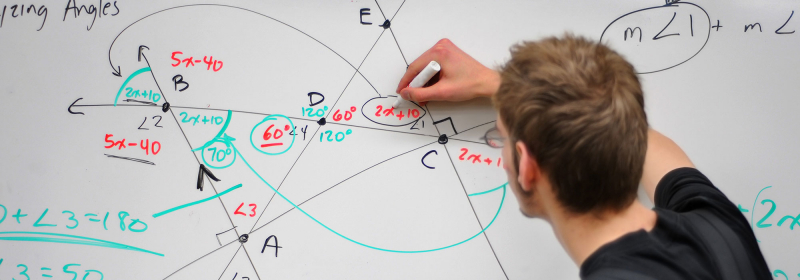
https://www.carlow.edu/ -
This course, "Calculus Differentiation: Learn Differential Calculus," provides an in-depth look at the differentiation section of calculus. The course covers everything there is to know about distinction. The following are some examples of topics:
- Trigonometric Functions Differentiation
- Differentiation on a Logarithmic Scale
- Fundamentals of Differential Calculus
- Differentiation Theorems
- Issues with Differentiation
- Chapter on differential equations as a foundation course.
After finishing this calculus course, you will have a good understanding of differentiation and will be able to answer differentiation problems. Calculus is an essential part of mathematics that is frequently tested in competitions. This calculus course will also benefit you in terms of competition.
You will learn differentiation and differentiation by plotting graphs in this calculus course. After that, you'll learn how to differentiate trigonometric functions. Differentiation of logarithmic functions and differentiation of exponential functions will be the third topic. Following that, you'll go through some key substitutions for trigonometric functions. You'll also discover differentiation theorems like the chain rule of differentiation, the product rule of differentiation, and the quotient rule of differentiation in this course. This is one of the best online calculus courses.
Finally, differentiation of infinite series and differentiation over integration will be discussed.What you will learn
- Solve problems on differentiation.
- Differentiation
- Methods of dedifferentiated
- Theorems of differentiation
Instructor: Princi Lodhi
Udemy rate: 4.3/5.0 (27 ratings)
Enroll here: https://www.udemy.com/course/calculus-lets-learn-differentiation/
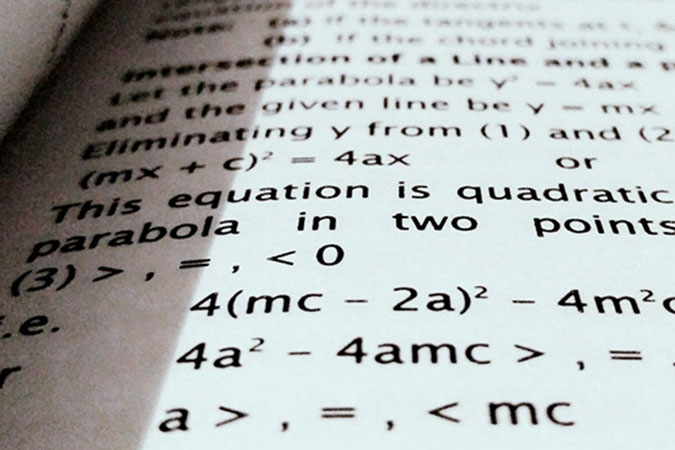
https://ung.edu/ 
https://ung.edu/
















